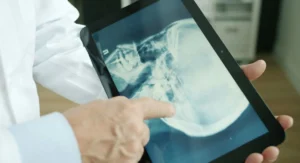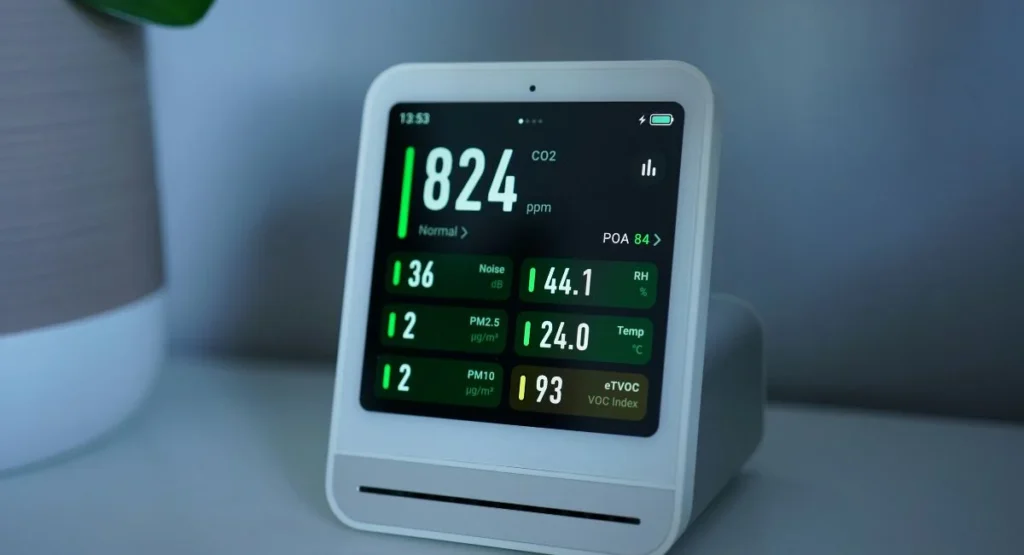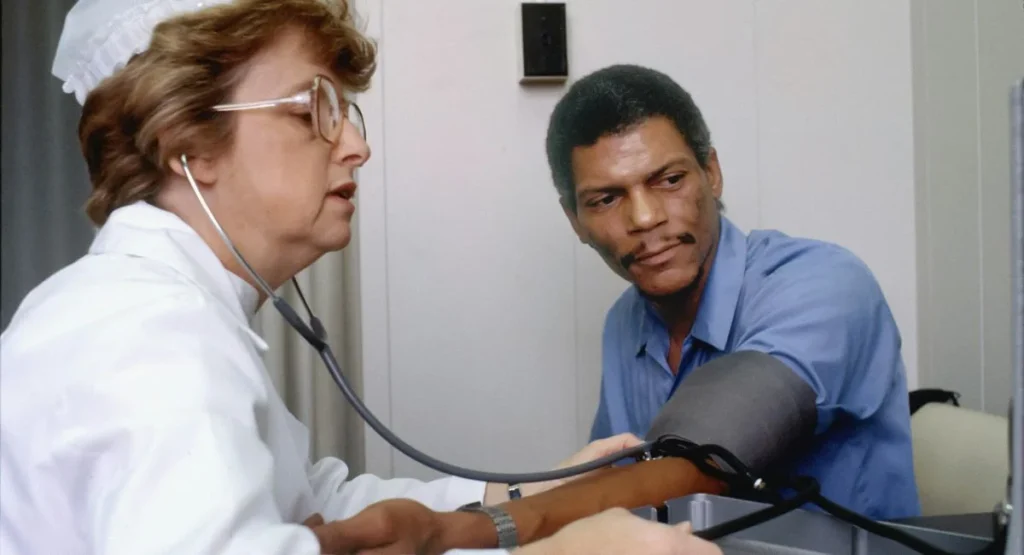Have you ever wondered how technology can improve the quality of care you receive at a medical clinic? As healthcare continues to evolve, one of the most significant advancements in recent years is the use of clinic management software.
This software isn’t just about streamlining administrative tasks—it’s also transforming the way healthcare providers interact with patients, manage their records, and significantly boost Patient Care and Outcomes. By leveraging digital tools, clinics can now deliver more accurate treatments and ensure better long-term results for every individual.
In today’s fast-paced world, efficiency, accuracy, and timely care are key to improving patient outcomes. Clinic management software is proving to be an invaluable tool for healthcare providers, helping them offer better care, reduce errors, and ultimately enhance the patient experience. Let’s explore how clinic software for patient care is making a difference.
How Does Clinic Software Help Streamline Administrative Tasks?
The first way clinic management software enhances patient care is by automating and streamlining administrative tasks that traditionally take up a lot of time and effort. Things like scheduling appointments, processing insurance claims, and handling billing can be incredibly time-consuming, taking valuable attention away from patients.
With clinic management software, all these tasks are integrated into one system. Automated scheduling means that patients can book or reschedule appointments with ease, and reminders are sent automatically to reduce no-shows. Insurance claims are processed more efficiently, and billing becomes less prone to errors. These features mean that the administrative side of the clinic runs smoothly, allowing healthcare providers to focus more on direct patient care.
By removing the burden of administrative work from doctors and staff, clinic management software helps medical practices run more efficiently, creating an environment where patient care becomes the primary focus. With this improved efficiency, doctors and staff have more time to interact with and treat their patients, improving overall satisfaction and outcomes.

How Does Clinic Software Improve Patient Care and Outcomes Management?
Managing patient records is one of the most crucial aspects of healthcare, but traditional methods—paper records or disjointed digital systems—can result in inefficiencies, errors, and miscommunications. Clinic software for patient care addresses this by offering a centralized, digital record-keeping system that ensures every patient’s medical history is easily accessible and securely stored.
With electronic health records (EHR) integrated into the software, doctors and nurses can instantly access up-to-date patient information, such as medical history, test results, treatment plans, and prescriptions. This not only saves time but also minimizes the chance of mistakes, such as misinterpretation of handwritten notes or outdated records. When patient information is readily available, healthcare providers can make informed decisions faster, which leads to more accurate diagnoses and better treatment outcomes.
Additionally, clinic management software allows for seamless coordination among healthcare providers. Specialists, pharmacists, and other professionals involved in a patient’s care can access the same up-to-date records, ensuring that no crucial detail is overlooked. This collaboration improves the overall quality of care provided to the patient.
How Does Clinic Software Enhance Communication Between Healthcare Providers and Patients?
Clear communication between healthcare providers and patients is key to improving outcomes. However, with the increasing complexity of healthcare, it can sometimes be difficult to ensure that every patient receives clear instructions and follow-up information.
Clinic management software plays a critical role in improving communication. Through patient portals, patients can access their own medical records, schedule appointments, and directly communicate with their healthcare providers. This transparency empowers patients to take an active role in their care and makes them feel more in control of their health.
Moreover, the software can send automated reminders to patients about upcoming appointments, medication refills, or follow-up tests. These reminders help ensure that patients don’t miss crucial steps in their treatment plan, leading to better adherence and outcomes.
For healthcare providers, the ability to send secure messages and follow-up instructions to patients via the clinic software can significantly reduce misunderstandings. Having clear communication channels improves the doctor-patient relationship, fostering trust and cooperation.
How Does Clinic Software Support Timely and Accurate Diagnosis?
In a healthcare setting, accurate and timely diagnoses are crucial to providing the best possible patient care. Clinic management software contributes to this process in several ways. By integrating diagnostic tools, medical imaging, lab results, and patient history into a single system, doctors can have all the relevant information they need to make an informed decision at their fingertips.
For instance, clinic management software that integrates with diagnostic equipment can automatically upload test results, which are then immediately available for the doctor to review. By reducing the time spent manually transferring information between systems, doctors can access results quickly and avoid delays that could affect patient outcomes.
Additionally, AI-powered features in some clinic management software are capable of analyzing data and suggesting possible diagnoses based on patient symptoms, history, and lab results. While these suggestions do not replace the doctor’s expertise, they serve as a valuable tool to help ensure that the right diagnosis is made and no potential issues are overlooked.
How Does Clinic Software Facilitate Better Follow-up and Monitoring of Patients?
Follow-up care is a critical part of ensuring that patients recover properly and continue to improve over time. Clinic management software is designed to streamline follow-up visits and help healthcare providers monitor patients between appointments.
With automated reminders and scheduling tools, patients are prompted to schedule follow-up appointments after a procedure or treatment, ensuring they receive timely care. Moreover, for patients with chronic conditions, the software can track vital signs, medications, and treatment progress, providing both patients and doctors with real-time updates. This ongoing monitoring allows healthcare providers to identify potential issues early, adjust treatment plans, and intervene before complications arise.
The software can also assist with post-care instructions, ensuring that patients follow through with essential steps for their recovery. By reducing the chances of missed follow-up visits or instructions, clinic management software helps improve long-term patient outcomes.
How Does Clinic Software Contribute to Personalized Patient Care?
Personalized care is at the heart of improving patient outcomes. Clinic management software helps healthcare providers create more personalized treatment plans by providing a comprehensive view of each patient’s medical history, preferences, and needs.
With access to detailed patient records, doctors can tailor their treatment recommendations to suit individual patient circumstances. For example, the software can flag potential drug interactions based on a patient’s current medications, or it can suggest alternative treatments based on the patient’s genetic makeup or lifestyle factors.
Clinic management software also empowers patients to communicate their preferences, whether they’re related to medication, treatment options, or appointment times. This personalized approach fosters a stronger doctor-patient relationship and helps ensure that patients receive care that aligns with their needs and goals.
How Does Clinic Software Improve Patient Safety?
Patient safety is paramount in healthcare, and clinic management software plays an important role in reducing the risk of errors and improving safety standards. One of the most significant ways it contributes to safety is through its ability to automatically flag potential issues related to medications, allergies, or previous treatments.
For example, clinic software can provide alerts when a doctor attempts to prescribe a medication that could interact negatively with a patient’s current prescriptions. It can also flag missing or incomplete information in patient records that might lead to a misdiagnosis or treatment error. These built-in safety features help to prevent mistakes before they happen, protecting both patients and healthcare providers.
Furthermore, clinic software can generate safety audits and reports that help practices identify areas where patient safety can be improved, creating an environment of continuous learning and improvement.
Conclusion:
Clinic management software is much more than just an administrative tool; it’s a game-changer in how healthcare providers manage patient care. From streamlining processes to enhancing communication and personalizing treatment, clinic software for patient care is revolutionizing the healthcare experience. By adopting clinic management software, healthcare providers can improve operational efficiency, patient safety, and, most importantly, patient outcomes. As technology continues to advance, the role of clinic management software in improving healthcare will only become more vital.
Ready to Upgrade Your Clinic?
Make your clinic smart, fast, and paperless with SehatPro Clinic Management Software.
Call or WhatsApp for Free Demo & ConsultationFAQs on Clinic Software for Patient Care
Q1: How does clinic management software improve the accuracy of diagnoses?
Clinic management software integrates multiple data sources, such as medical imaging and lab results, into one accessible system. This helps doctors make more informed decisions quickly and reduces the risk of missing important diagnostic information.
Q2: Can clinic software help with chronic disease management?
Yes, clinic management software can track vital signs, medications, and treatment plans for patients with chronic conditions. It can also send automated reminders for follow-up appointments or medication refills, ensuring better management of these patients’ ongoing care.
Q3: Does clinic software make it easier to communicate with patients?
Yes, clinic software enhances communication by offering patient portals where individuals can access their medical records, schedule appointments, and communicate directly with their healthcare provider. It also sends automated reminders and follow-up instructions.
Q4: How does clinic software improve patient safety?
Clinic software reduces errors by flagging potential issues like drug interactions, allergies, or missing information in patient records. It also generates reports and safety audits to identify areas for improvement, helping clinics maintain high safety standards.
Q5: How can clinic software help with the financial side of patient care?
Clinic management software integrates billing and insurance claim processing, reducing errors and improving cash flow. It also helps track patient payments, making it easier to follow up on overdue bills, ultimately ensuring financial stability for the practice.




